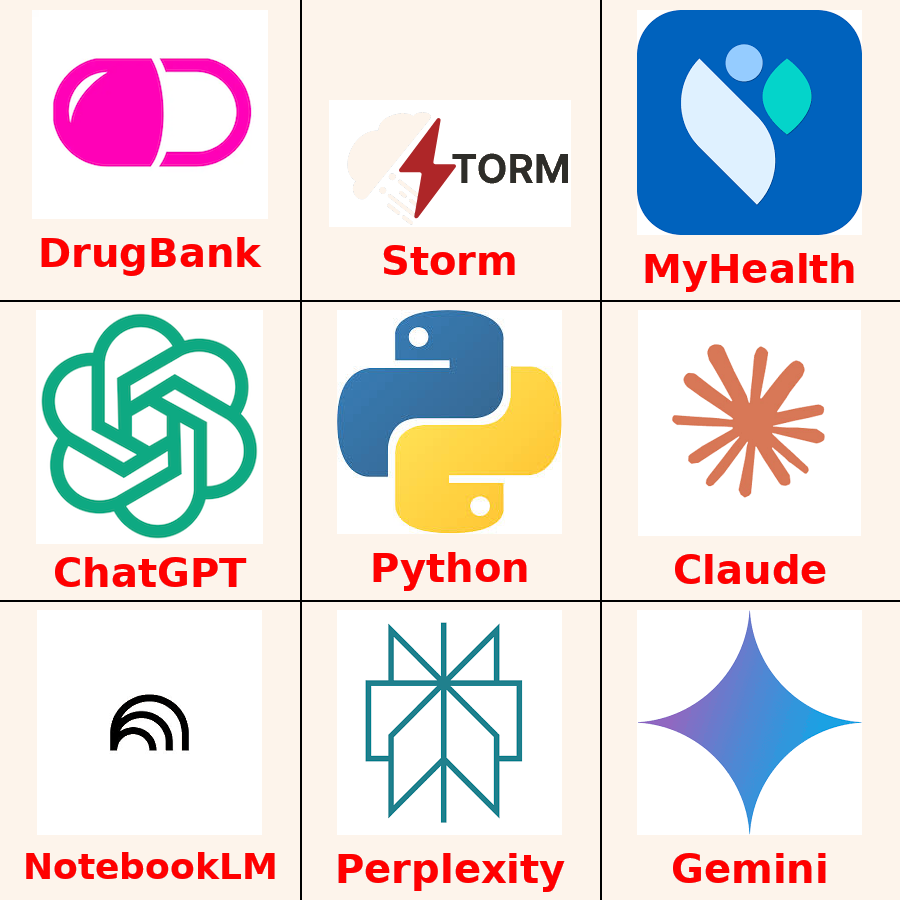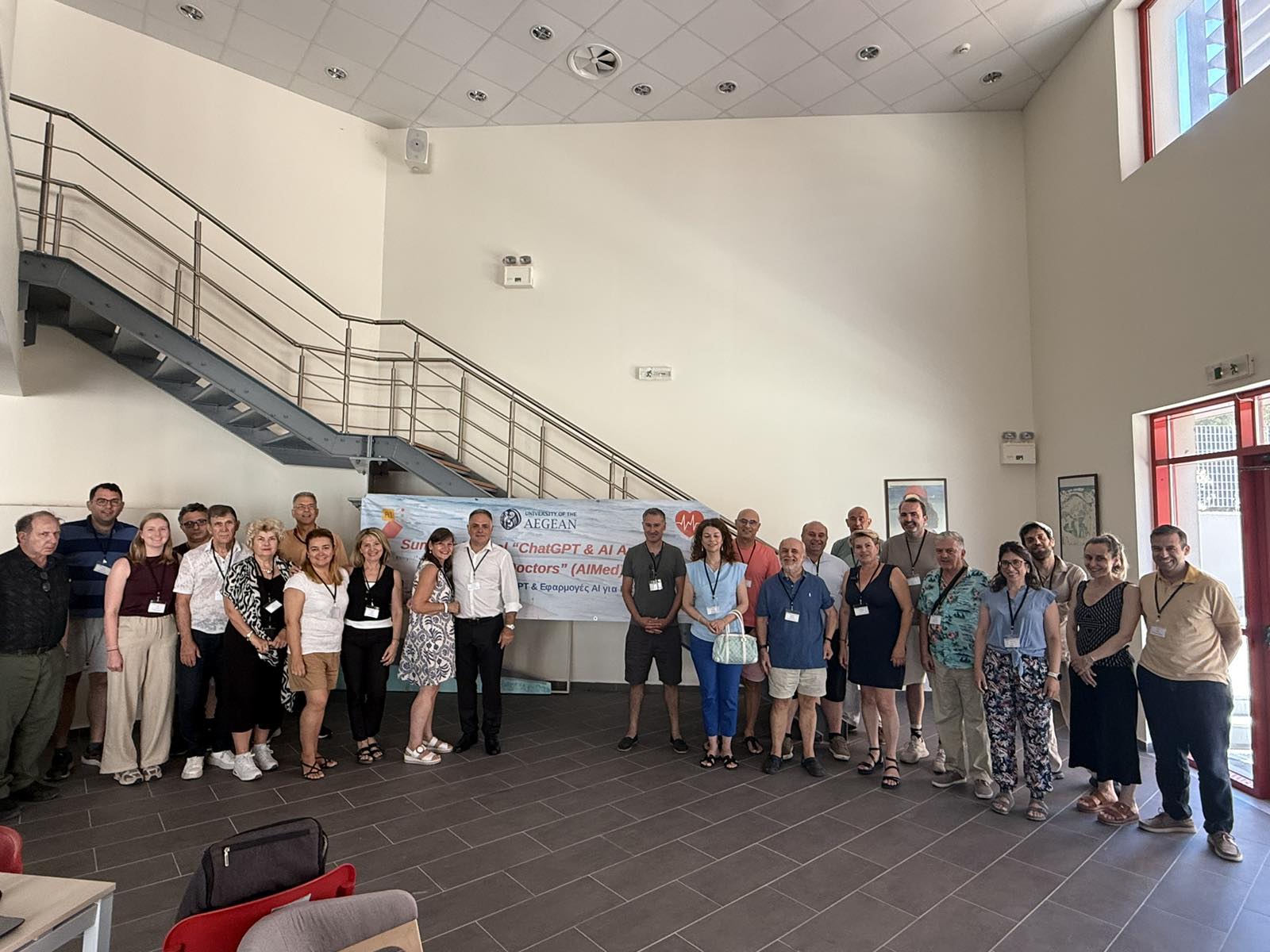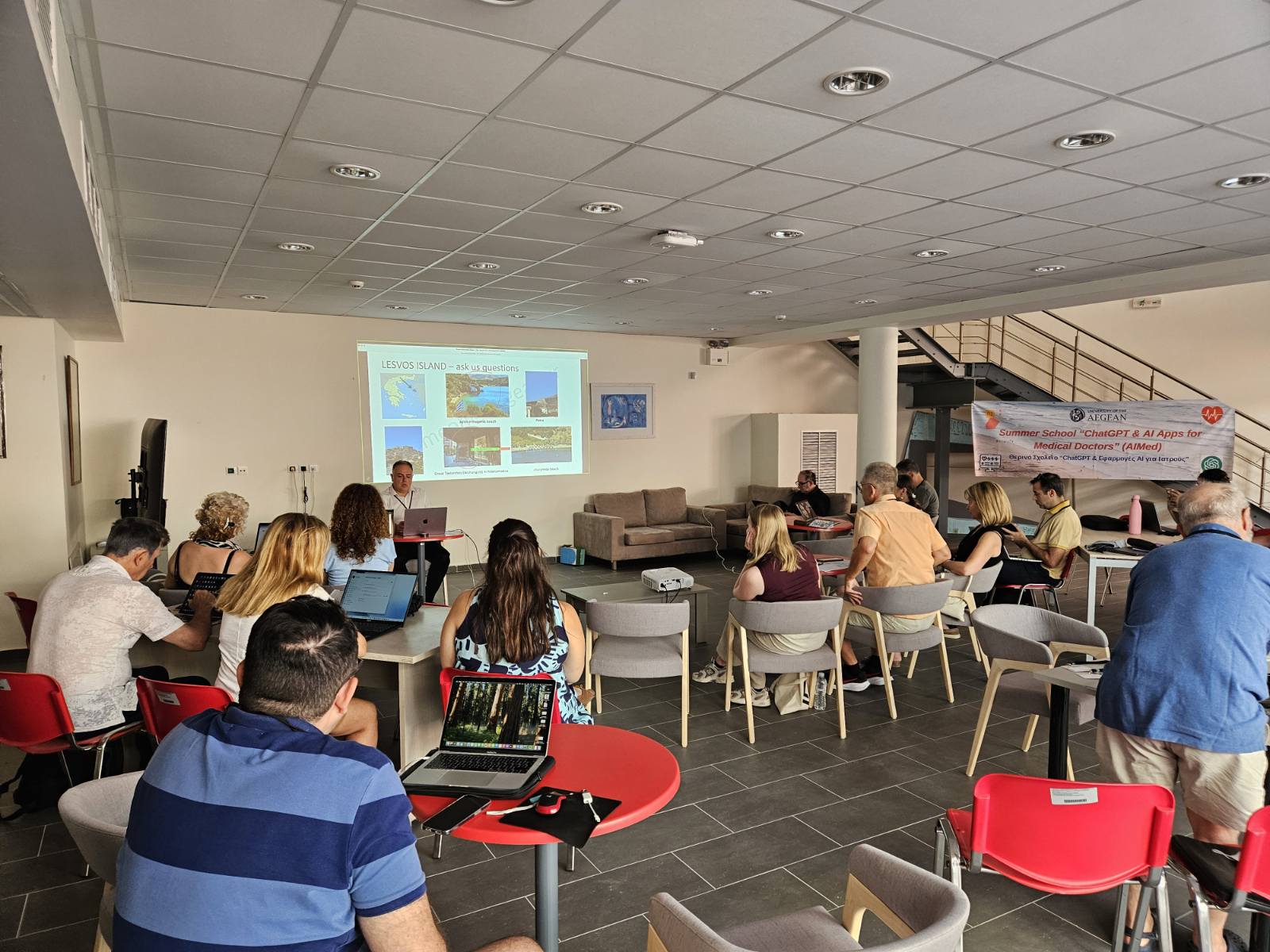2ο Θερινό Σχολείο “ChatGPT & Εφαρμογές AI για Ιατρούς” (AIMed 2026)
Σάββατο 25 — Τετάρτη 29 Ιουλίου 2026 · Μυτιλήνη, Λέσβος
Νέες Δυνατότητες
Αξιοποίηση του 3D Slicer για Επεξεργασία Ιατρικών Εικόνων DICOM (X-Rays, MRIs, CT scans)
Πλήρης Παραμετροποίηση του ChatGPT 5 (μοντέλα GPT-5, ο3, GPT-4ο, κτλ.)
Αξιοποίηση ΒιοΙατρικών Βάσεων Δεδομένων (π.χ., PubMed, Γαληνός, DrugBank, Entrez, ProteinBank, KEGG, κτλ.).
Δεκάδες ΑΙ apps για Ιατρούς (Perplexity, MedGemma, Claude, NotebookLM, κτλ.).
Πρακτική εκπαίδευση σε πολυτροπικά ιατρικά δεδομένα και χρήση βέλτιστων prompts για κλινική υποστήριξη (MRIs, CT-scans, X-rays), Medical Signals (ECGs, EEGs, etc.).
Ηλεκτρονικός Φάκελος Υγείας Ασθενών (Ηλεκτρονική Συνταγογράφηση & Αλληλεπιδράσεις Φαρμάκων, Ιατρικές παρεμβάσεις, κτλ).
Διδάσκοντες
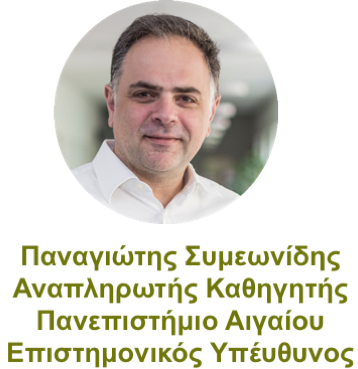
Βιογραφικό
Panagiotis Symeonidis is Associate Professor at the School of Information and Communication Systems Engineering of the Aegean University, Greece from November 2020. Before, he was Assistant Professor at the Faculty of Computer Science (scientific sector INF/01) of the Free University of Bolzano, Italy, from November 2016 till November 2020. Before moving to Bolzano, he worked for 8 years as Adjunct Assistant Professor at the Department of Informatics of the Aristotle University of Thessaloniki, Greece. He received a B.Sc. degree in Applied Informatics from University of Macedonia at Thessaloniki in 1996. He also received a M.Sc. degree in Information Systems from the same university in 2004. He received his Ph.D. in Web Mining and Information Retrieval for Personalization from the Department of Informatics of the Aristotle University of Thessaloniki in 2008. His research interests include personalized health, AI and Medical Data Management. He is co-author of 3 international books, 2 Greek books, 6 book chapters, 32 journal publications and 46 conference/workshop publications. His published papers have received more than 3600 citations and has an h-index = 31, according to Google Scholar.
Βιογραφικό
Dimitrios Sacharidis is an assistant professor at the Data Science and Engineering Lab at the Université Libre de Bruxelles (ULB). Prior to that he was an assistant professor at the Technical University of Vienna, and a Marie Skłodowska Curie fellow at the “Athena” Research Center and at the Hong Kong University of Science and Technology. He has a Diploma and a PhD in Computer Engineering from the National Technical University of Athens, and a MSc in Computer Science from the University of Southern California. In his research, he is interested in topics related to data science, data engineering, responsible AI, fairness and ethics in medical and other types of data.
Βιογραφικό
Christos Andras received a bachelor’s in applied informatics from Macedonia University, Greece in 1996 and PhD in Sociology of Internet Technology from the same university in 2009 and MSc in Network and Complexity, Aristotle University Thessaloniki in 2022. Lately he has worked as a Software Developer and System Administrator at the Greek Language Centre, Greece. Currently, he is Specialized and Laboratory Teaching Staff in Department of Industrial Engineering and Management - International Hellenic University, specialized in "Social Information Systems". He is teaching databases and information systems. He has developed commercial applications such as (MyBusiness E.R.P, www.epsiloncomp.gr), information system for the management of psychiatric clinics etc.
Βίντεο από το Εργαστηριακό Χώρο και τις λοιπές Υποδομές
Κλιματιζόμενο Δίκλινο (40€/ημέρα) Κλιματιζόμενο Μονόκλινο (30/ημέρα)
Σαλόνι & Κουζίνα
Αναλυτικό Πρόγραμμα — 15 Διδακτικές Ενότητες (5 ημέρες × 3 ώρες)
Κάθε ημέρα έχει 3 ώρες: 08:30–09:15 · 09:45–10:30 · 10:45–11:30.
Σάββατο 25 Ιουλίου 2026 — Διαχείριση EHR & Ιατρικών Δεδομένων
| Ώρα | Διδ. Ενότητα | Αναλυτικό Περιεχόμενο (αυτούσιο) | Υλικό |
|---|---|---|---|
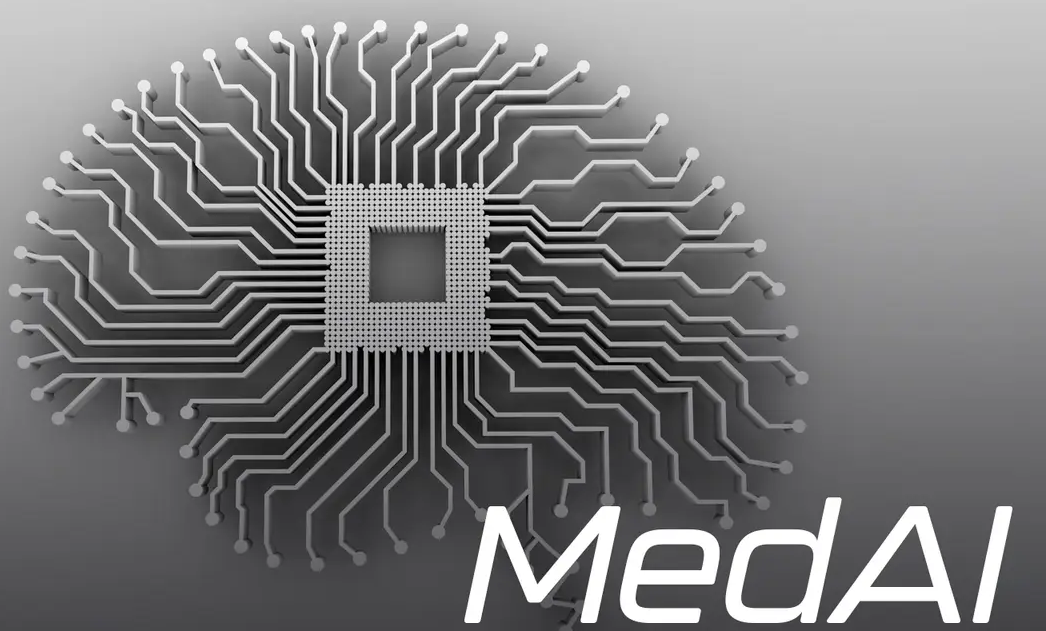 08:30–09:15
08:30–09:15
|
(Διδ. Ενότητα 1) Διαχείριση Hλεκτρονικού Φακέλου Υγείας Ασθενούς |
a. Electronic Health Records Management from https://ehealth.gov.gr/ i. Διαγνώσεις b. Health data types (vital signs, bio-indexes and Bio-markers (PSA, ECG, etc.), ECGs, CT scans, ΜRIs, and other complex medical signals) c. Μελέτη Περίπτωσης δεδομένων ενός Nοσοκομείου της Βοστώνης (MIMIC ΙΙΙ Medical Data set) |
15 SAMPLE Slides |
 09:45–10:30
09:45–10:30
|
(Διδ. Ενότητα 2) Χρήση του ChatGPT για την Αξιολόγηση Εικόνων και άλλων Ιατρικών Σημάτων |
Πώς να χρησιμοποιήσετε το ChatGPT για την ερμηνεία και αξιολόγηση ιατρικών εικόνων και άλλων σύνθετων ιατρικών σημάτων, όπως τα ηλεκτροκαρδιογραφήματα (ΗΚΓ). Αυτοματοποιημένη παραγωγή αναφορών (reports) βάσει συνδυαστικής απεικονιστικής διάγνωσης και εξαγωγή αιτιολογημένων ιατρικών συμπερασμάτων.
|
14 SAMPLE Slides |
 10:45–11:30
10:45–11:30
|
(Διδ. Ενότητα 3) Machine learning algorithms for Image Processing and other complex medical signals |
a. Convolution Neural Networks b. Applications over different medical signals c. Support Vector machines d. Programming Exercise with python to apply image processing over CT scans and classify patients into COVID and non-COVID disease. |
9 SAMPLE Slides |
11:30 — Ομαδικές Εργασίες (προαιρετικό)
Κυριακή 26 Ιουλίου 2026 — Ηθική & Προστασία Δεδομένων
| Ώρα | Διδ. Ενότητα | Αναλυτικό Περιεχόμενο (αυτούσιο) | Υλικό |
|---|---|---|---|
 08:30–09:15
08:30–09:15
|
(Διδ. Ενότητα 1) Ζητήματα Ηθικής της Εφαρμογής ΑΙ στην Ιατρική και Προστασία Ευαίσθητων Ιατρικών Δεδομένων. |
α) Τεχνητή Νοημοσύνη και Ηθικά Ζητήματα στην Ιατρική β) Προστασία Ευαίσθητων Προσωπικών Δεδομένων Ασθενών |
13 SAMPLE Slides |
 09:45–10:30
09:45–10:30
|
(Διδ. Ενότητα 2) Χρήση ChatGPT για τη σύνοψη (περίληψη) πολυμορφικών ιατρικών δεδομένων |
a. Χρήση ChatGPT για την αξιολόγηση ηλεκτρονικού φακέλου υγείας (ΗΦΥ) ασθενούς i. Δημογραφικά στοιχεία ασθενούς b. Χρήση ChatGPT για την παραγωγή αναλυτικής επεξήγησης μιας θεραπευτικής αγωγής σε έναν ασθενή. i. Κατάλογος με όλα τα φάρμακα που πρέπει να συνεχίσει να λαμβάνει ο ασθενής μετά την επίσκεψη του, μαζί με οδηγίες για τη δοσολογία και τη διάρκεια της λήψης τους. c. Παρουσίαση AI λογισμικού που προβλέπει την βέλτιστη δόση ινσουλίνης για ασθενή με διαβήτη με την χρήση ενός αλγορίθμου Deep Reinforcement Learning. |
13 SAMPLE Slides |
 10:45–11:30
10:45–11:30
|
(Διδ. Ενότητα 3) Reinforcement Learning, and Deep Neural Nets |
a. Markov Chain c. Multi-layer perceptron d. Recurrent Neural Networks e. Programming Exercise with Python to predict the optimal insulin dose for patient with diabetes using tabular Q-learning algorithm. |
10 SAMPLE Slides |
11:30 — Ομαδικές Εργασίες (προαιρετικό)
Δευτέρα 27 Ιουλίου 2026 — Αλγόριθμοι AI, Med Gemini & Γράφοι
| Ώρα | Διδ. Ενότητα | Αναλυτικό Περιεχόμενο (αυτούσιο) | Υλικό |
|---|---|---|---|
 08:30–09:15
08:30–09:15
|
(Διδ. Ενότητα 1) Αλγόριθμοι AI για την Αξιολόγηση Ιατρικών Δεδομένων και την Υποστήριξη Κλινικών Αποφάσεων. |
a. Καινοτόμοι Αλγόριθμοι ΑΙ στην Βιοιατρική (π.χ. Alphafold) |
20 SAMPLE Slides |
 09:45–10:30
09:45–10:30
|
(Διδ. Ενότητα 2) Σύνθετη κλινική εξαγωγή συμπερασμάτων με τη χρήση του Med Gemini της Google |
Example of a Clinical Case study give to Med Gemini: This task requires the model to integrate the patient's symptoms, medical history, physical examination findings, and laboratory results to suggest a likely diagnosis (such as heart failure) and recommend appropriate next steps for investigation (e.g., echocardiogram, chest X-ray). a. Demonstration of several examples of complex clinical reasoning decision tasks, made using the Med Gemini of Google. |
12 SAMPLE Slides |
 10:45–11:30
10:45–11:30
|
(Διδ. Ενότητα 3) Medical Graph Data algorithms |
a. Local based similarity algorithms (Shortest Path i. Common Neighbors, Jaccard similarity index, Salton similarity index, Adamic & Adar similarity index, Preferential Attachement. b. Global-based algorithms i. Random Walk with Restart ii. SimRank iii. PathSim c. Graph Convolution networks d. Graph Embeddings e. Programming Exercise with Python to predict drug combinations to patients and explain the predictions using graph data (patient nodes, treatment node, drug node). |
10 SAMPLE Slides |
11:30 — Ομαδικές Εργασίες (προαιρετικό)
Τρίτη 28 Ιουλίου 2026 — ChatGPT Prompts, Εφαρμογές ΤΝ, Transformers & ChatGPT Atlas
| Ώρα | Διδ. Ενότητα | Αναλυτικό Περιεχόμενο (αυτούσιο) | Υλικό |
|---|---|---|---|
 08:30–09:15
08:30–09:15
|
(Διδ. Ενότητα 1) Κατάλληλα ChatGPT Prompts για Ιατρούς. |
a. Τι είναι τα ChatGPT prompts και ποια η σημασία τους; Παράδειγμα ενός Prompt για ChatGPT 4ο: e. Study of Several Different Clinical Cases along with the creation of adequate ChatGPT prompts |
15 SAMPLE Slides |
 09:45–10:30
09:45–10:30
|
(Διδ. Ενότητα 2) Εφαρμογές Tεχνητής Nοημοσύνης για Iατρούς |
a. Ιατρική ακριβείας και Εξατομικευμένη Ιατρική |
15 SAMPLE Slides |
 10:45–11:30
10:45–11:30
|
(Διδ. Ενότητα 3) ChatGPT Atlas and Large Language Models (Transformers) |
a) Παραμετροποίηση του ΑΙ Agent του ChatGPT Atlas ώστε αυτός να ενεργεί αυτόνομα στο διαδίκτυο
b) Transformers |
Υλικό επί τόπου |
11:30 — Ομαδικές Εργασίες (προαιρετικό)
Τετάρτη 29 Ιουλίου 2026 — Drug-Drug Interactions, Διαδίκτυο των Ιατρικών Συσκευών & Νέες Τάσεις
| Ώρα | Διδ. Ενότητα | Αναλυτικό Περιεχόμενο (αυτούσιο) | Υλικό |
|---|---|---|---|
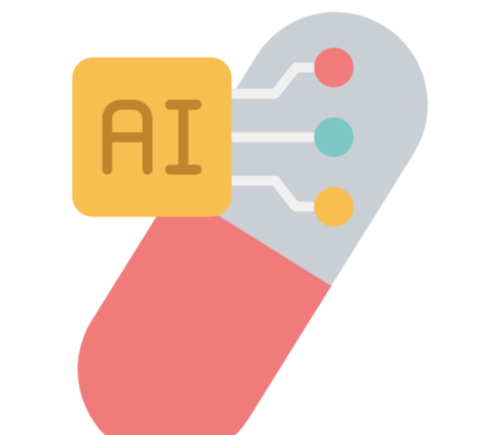 08:30–09:15
08:30–09:15
|
(Διδ. Ενότητα 1) ChatGPT για τον εντοπισμό ανεπιθύμητων παρενεργειών φαρμάκων |
Use of ChatGPT for finding undesirable drug-drug interactions based on new medicine findings over Web (i.e. DrugBank) a. Undesirable Drug-Drug Interaction Checker |
14 SAMPLE Slides |
 09:45–10:30
09:45–10:30
|
(Διδ. Ενότητα 2) Διαδίκτυο των Ιατρικών Συσκευών (Internet of Medical Things - IoMT) |
a. Ψηφιοποιημένη καταγραφή καθημερινών ζωτικών ενδείξεων (μέτρηση κορεσμού οξυγόνου στο αίμα,
Αρτηριακή Πίεση, μέτρηση συστολικής και διαστολικής πίεσης, θερμοκρασία σώματος, καρδιακός
ρυθμός, Αναπνευστικός Ρυθμός, ECG, Glucose Continuous Monitoring, κτλ.) για παρακολούθηση και
έγκαιρη ειδοποίηση των γιατρών σε πραγματικό χρόνο και για την ανάλυση πολυμορφικών ιατρικών
δεδομένων που επιτρέπουν τεκμηριωμένη εξαγωγή ιατρικών συμπερασμάτων/γνωματεύσεων. |
15 SAMPLE Slides |
 10:45–11:30
10:45–11:30
|
(Διδ. Ενότητα 3) New Trends and Apps in Health Care |
i. Smart Medical Watches
ii. Smart Medical Devices.
b. Large Language Models, and Prompt Engineering c. Programming Exercise with Python to send the electronic health record of a patient to ChatGPT API using a prompt request (prompt engineering) and get a possible therapeutic prediction based on the given vital signs. |
10 SAMPLE Slides |
11:30 — Ομαδικές Εργασίες (προαιρετικό)
